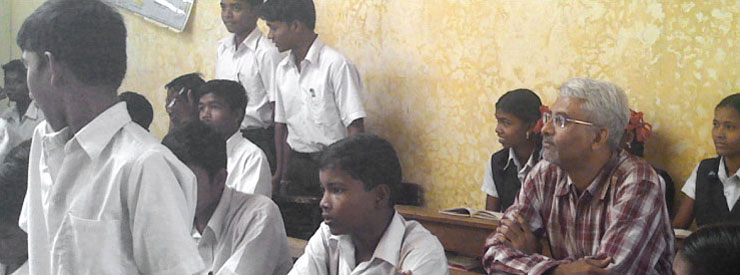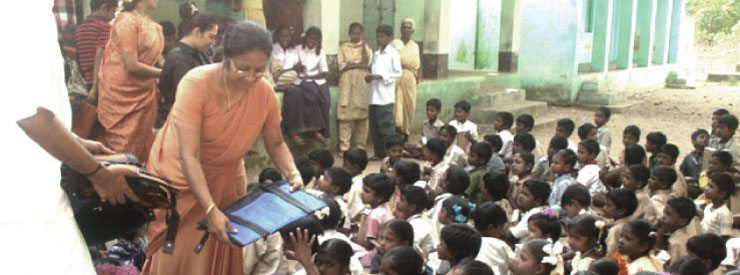FAQs
What is Cancer?
Cancer is an abnormal growth of a body cell or group of cells. If it is not destroyed or removed, cancer can spread very rapidly, and eventually lead to death.
There are over 100 different types of cancer, and each is classified by the type of cell that is initially affected.
What is the difference between normal and cancerous growth?
There are billions of cells in the human body. Normally, they grow in a well-regulated pattern of growth, division, and death. Programmed cell death is called apoptosis, and when this process breaks down, cancer begins to form. Unlike regular cells, cancer cells do not experience programmatic death and instead continue to grow and divide uncontrollably. This leads to a mass of abnormal cells that grows out of control.
When cancer sets in, a group of cells suddenly starts multiplying haphazardly and forms a lump or "tumor"(except in the case of leukemia where cancer prohibits normal blood function by abnormal cell division in the blood stream).
How many kinds of tumors are there?
There are two kinds of tumors. Malignant and benign. A benign tumor is more common, and is generally harmless. It doesn't grow beyond a certain limit, and it doesn't spread to other parts of the body.
A malignant tumor on the other hand, never stops growing and can spread to other parts of the body. Cancer is the name given to a malignant growth.
More dangerous, or malignant tumors form when two things occur:
- A cancerous cell manages to move throughout the body using the blood or lymph systems, destroying healthy tissue in a process called invasion.
- that cell manages to divide and grow, making new blood vessels to feed itself in a process called angiogenesis.
When a tumor successfully spreads to other parts of the body and grows, invading and destroying other healthy tissues, it is said to have metastasized. This process itself is called metastasis, and the result is a serious condition that is very difficult to treat.
Is cancer contagious or infectious?
No. Since cancer is not caused by a germ, it is not "catching", and cannot be transmitted from one person to another.
What is Paediatric Cancer?
Cancer found in children is known as Paediatric Cancer. Most paediatric cancers are quite unlike those found in adults and so are the factors that trigger them. Also, though different types of cancer lead to different survival rates, it has been observed that the survival rates are higher in children than they are in for adults.
What causes Paediatric Cancer?
In spite of the advances in medical science, little is known about the causes of childhood cancer and why only some children are affected by it. However, it is understood that chromosome disorders are responsible for most cases of childhood Leukemia and high levels of exposure to radiation (x-rays etc.) during pregnancy can lead to childhood cancers. Children with Down Syndrome are also more susceptible to Leukemia than others. Other risk factors for childhood cancer include parents’ diet, smoking and alcohol consumption before the child was conceived, as well as infectious diseases like Epstein-Barr virus in Hodgkin disease. Harsh environmental factors may also lead to cancer in children, though there is really no valid data to prove it.
Are there any early warning signs for childhood cancer?
Unfortunately, no. The cancer type defines the signs the child will show. For instance, frequent bruising is common in Leukemia, pain in the arms or legs in bone cancer, a swollen abdomen in neuroblastoma and dizziness or seizures in brain tumor. There are also cases where only a paediatric oncologist can make the diagnosis.
How can childhood cancer be prevented?
Since very little is currently known about what causes childhood cancer, it is difficult to recommend prevention courses. Also, since in children the major causes seem to be chromosomal and genetic abnormalities, prevention is difficult. However, the Children’s Oncology Group (COG) continues to conduct epidemiology, cytogenetic, and microbiology studies in a continuous quest for answers.
How long is the treatment period for childhood cancer?
It all depends on the type of cancer the child is suffering from. The time period may vary depending on the kind and stage of cancer, the type of treatment recommended and even the age and gender of the patient. The doctor leading the treatment will be the best person to advice you on this.
What is "Teen Gap"?
In many cases doctors who treat adult cancer also treat teens with cancer. This leads to a certain gap called ‘Teen Gap’ in treatment since technically they are still children and stand a better chance of recovery if they are under the care of specialists in childhood cancer.
CHILD SPECIFIC
"Will I Get Well?"
Cancer affects a child’s mind as much as it does the body. He or she may have heard of people dying of cancer, and as a result will be terrified to ask “Will I get well?” in case the answer is no. It is here that the child needs very careful handling. He or she may be told that cancer is a serious disease but also that there are medicines to cure it. The patient always needs to be enveloped in a positive environment where he or she feels secure.
"What Will Happen to Me?"
When a child is first diagnosed with cancer, he or she will face many new and scary things: doctor’s visits, medicines, procedures and all. Also, while at the doctor’s, he or she may see other cancer patients who are not feeling well, have lost hair or have had limbs removed because of cancer. The child is bound to wonder - “Will these things happen to me?” – but may be too afraid to ask the question. It is important to discuss these fears with the child and explain ahead of time about the cancer, treatment, and possible side effects. He or she needs to be told that there are different types of cancer and that it affects different children differently. The child needs to understand that what he or she sees around him or her may not happen to him or her. Being positive around the child goes a long way in calming the child.
"Why do I have to take medicine when I feel okay?"
Children do not understand why they have to take medicine when they feel well and often in cancer, a child may feel well most of the time. At such times, reminding the child the need to take the medicine is important: “Although you are feeling well, the bad cells are hiding. You must take the medicine for a while longer to find the bad cells and stop them from coming back.”
(Source:http://www.medicalnewstoday.com/info/cancer-oncology/
http://www.indiancancersociety.org/faqs-about-cancer/faqs.aspx












